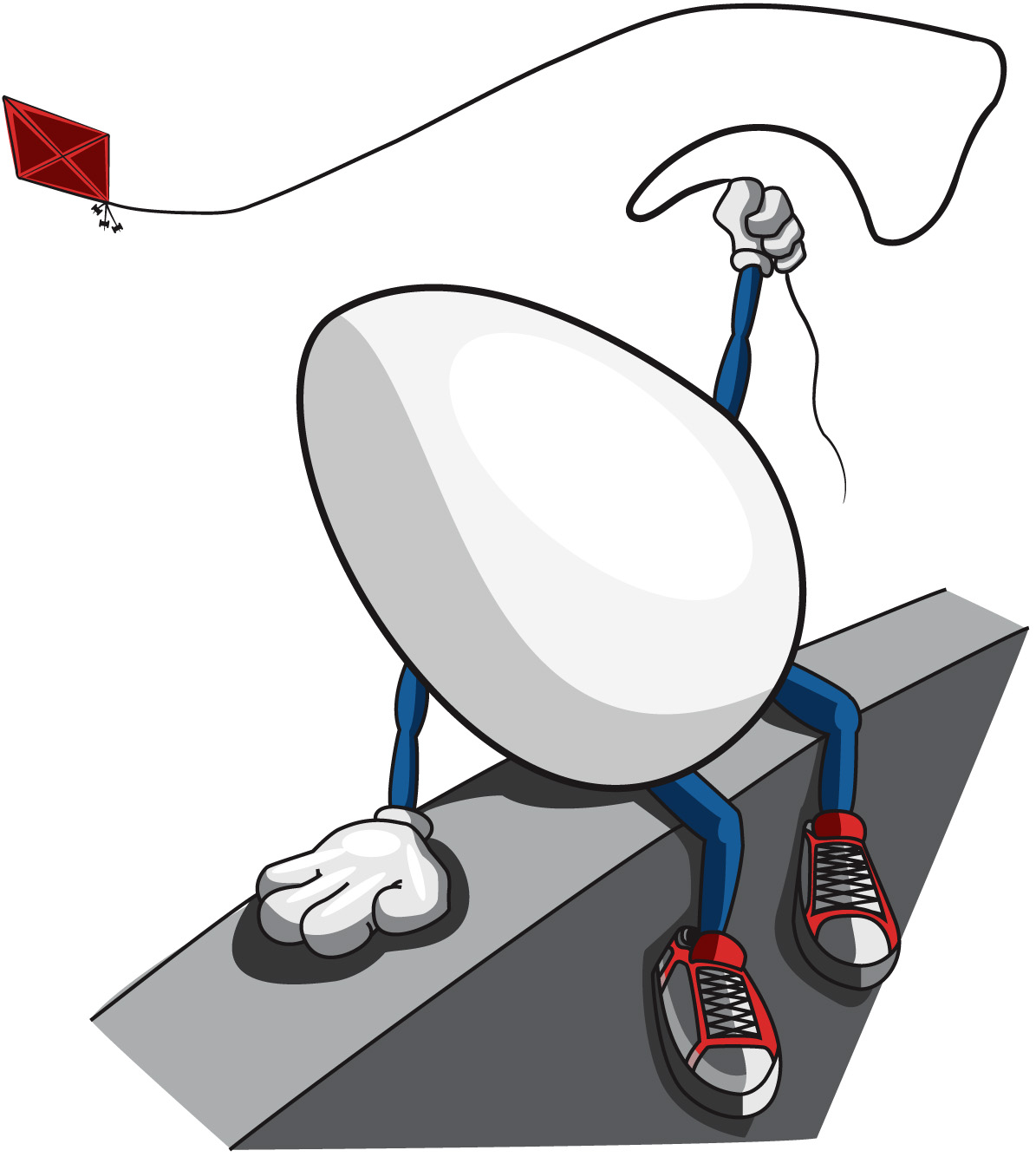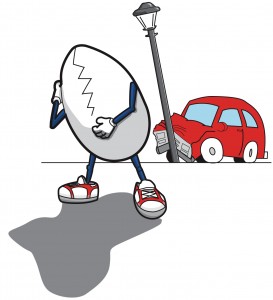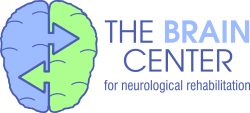
It can get frustrating to say the least after having an accident such as Humpty had. The myriad of symptoms that follow can be mind numbing to say the least. Of course your injury may not have come from falling off a wall as in Humpty’s case. It may have occurred following an automobile or motorcycle accident, a fall, something falling on you, while playing a sport, or by a number of other ways. There are numerous ways to get injured. Many times, injuries initially might not even seem serious at first glance. In fact, you do not have to even hit your head for you to have a head injury, as is seen in a whiplash type injury, and symptoms may not even appear until weeks or months later.
type injury, and symptoms may not even appear until weeks or months later.
We are all aware that we might have pain following an injury, but when we don’t and the symptoms are more subtle at first, we might not even relate them to the accident. For instance, you could have pain, blurred vision, trouble following conversations, having a hard time sleeping, problems with memory, nausea, or emotional issues like being sad or angry frequently, a week or two following a whiplash. You may not even relate these new symptoms to your accident at all. You could possibly have these new symptoms checked out at an urgent care facility or at your doctor’s office at a later date, thinking these are merely new symptoms. During your exam, they might even ask you if this was a result of an accident and if you hit your head. Having had an accident a few weeks ago without much damage to you or your car and without actually hitting your head, you might not even make the connection. Without properly finding out why these new symptoms arose suddenly might slow down your progress, especially if the prescribed treatment plan is simply aimed at merely controlling your symptoms.
In addition to the multitudes of pain issues one could experience, (headaches, low back pain, neck pain and lack of mobility, shooting pain down your arms or legs just to name a few) one might notice numerous other symptoms that were not there before your accident. Losing focus, obsessing, not being able to turn your mind off, memory issues, digestive issues and nausea are a few common symptoms that show up foll owing head traumas.
owing head traumas.
Even without having had an accident, that you are aware of, you may have noticed various warning signs that your brain might be aging faster than your body. Not feeling as mentally sharp or crisp as you used to? As you get older this is often dismissed as normal. Are you increasingly missing appointments, walking into a room and forgetting why you’re there, forgetting important dates or names or reading something and forgetting what you just read? You need to take notice of the warning signs that your brain needs a boost no matter what your age. We are experiencing more decline in brain function because of our hectic lifestyles, (computers, cell phones, medication, conferencing video calls, pollution, television) than any time before. Our fast paced world could be slowing down our brain and not allowing ourselves to be at Peak Mental Performance.
Wouldn’t it be nice if you were able to turn on a switch inside your head so you can perform with certainty, see things more precisely with precision and clarity, and make sound judgments? For many who have problems with controlling their emotions (anger, irritability, sadness, anxiety, depression) or have problems with learning disabilities and attention (ADD, ADHD, OCD) this thought of turning on a switch inside your head is now not such a far-fetched notion.
Neurofeedback is a ground breaking technique that allows the brain to work more efficiently. This powerful brain-based technique has been helping clients better function around the world for over 30 years. This non-invasive procedure has remarkable results for a multitude of symptoms.

